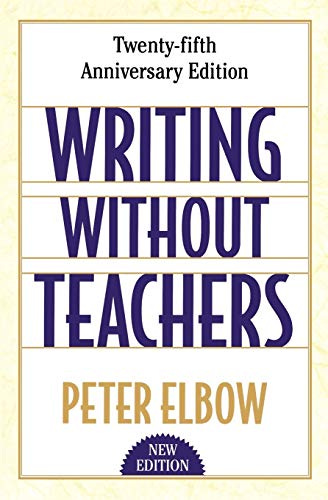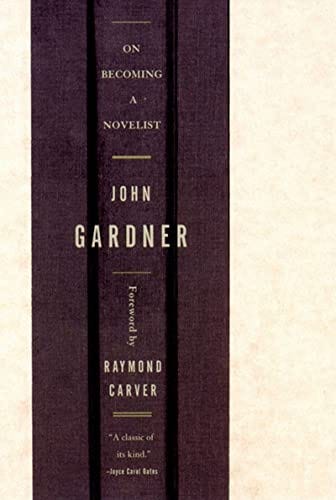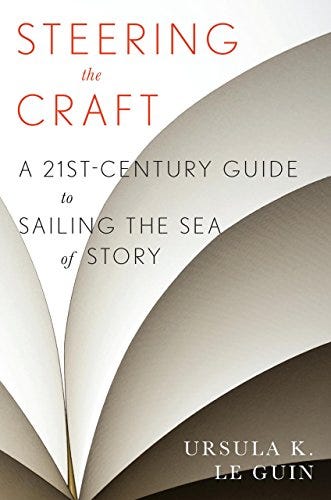Reading on Writing
Since such a skill springs and grows in me,
that I can write poetry – and I do claim so! –
it will look bad if it doesn't show
—Raimbaut of Orange, a Lord of Provence and a troubadour, ca. 1160 A.D.
So, I’m writing a book. The book is historical fiction, involving Richard the Lionheart, as you might have guessed by now.
There. I admitted it. I’m writing. Confession is good for the soul. Or, as Robert Heinlein famously said,
Writing is not necessarily something to be ashamed of—but do it in private and wash your hands afterwards.
—Time Enough for Love, Robert Heinlein
As a result, I’ve been reading books about writing—yes, it’s pretty ‘meta’—but also very helpful, and interesting as well. I know nobody is here for writing advice; still I wanted to capture the books, and some of the things I learned from them, for myself, if no one else.
My first book on writing, I received from my good friend Thomas Jensen (the author of As A Black Prince on Bloody Fields). Unasked, he sent me Writing Without Teachers. It can be a difficult book to read at times, but it contains many gems. For example:
The most effective way I know to improve your writing is to do freewriting exercises regularly. At least three times a week. They are sometimes called “automatic writing,” “babbling,” or “jabbering” exercises. The idea is simply to write for ten minutes (later on, perhaps fifteen or twenty). Don’t stop for anything. Go quickly without rushing. Never stop to look back, to cross something out, to wonder how to spell something, to wonder what word or thought to use, or to think about what you are doing. If you can’t think of a word or a spelling, just use a squiggle or else write, “I can’t think of it.” Just put down, something. The easiest thing is just to put down whatever is in your mind. If you get stuck it’s fine to write “I can’t think what to say, I can’t think what to say” as many times as you want; or repeat the last word you wrote over and over again; or anything else. The only requirement is that you never stop.
— Writing without Teachers by Peter Elbow
This process reminds me of an odd story about the classical pianist, Glenn Gould, when he was learning Beethoven’s Sonata no. 30, Opus 109, which has a very difficult moment (I think he was talking about the next 20 seconds or so, of this, if you’re curious).
Anyway, about two or three weeks before I was to play the thing for the first time, I started to study the score, and about a week ahead of time I started to practice it (which sounds suicidal, but that's the way I always operate). And the first thing I did, foolishly - very bad psychology - was to think in terms of: Well, let's try the variation, just to make sure there's no problem - it had never seemed to be one when I sat down and read the thing through when I was a kid . . . but better try it, better work out a little fingering system just in case, you know. And as I began to workout my system, one thing after another began to go wrong. Before many minutes had elapsed I found that I'd developed a total block about this thing. And three days before the concert, the block, which I'd tried to get rid of by all kinds of devious means - not playing the piece at all, for instance - had developed apace, so that I couldn't get to that point without literally shying and stopping. I just froze at that particular moment. I thought, something's got to be done about this - I've got to change the program or delete the variation or pretend that I know something about the autograph that they don't. So I decided to try the Last Resort method. That was to place beside the piano a couple of radios, or possibly one radio and one television, turn them up full blast- that's really in effect the experiment that years later I was to read about re Non-Anesthetic Dentistry - turn them up so loudly that, while I could feel what I was doing, I was primarily hearing what was coming off the radio speaker or the television speaker or, better still, both. I was separating, at this point, my areas of concentration, and to such an extent that I realized that that in itself would not break the chain of reaction. (It had already begun to make its mark, the problem had begun to disappear. The fact that you couldn't hear yourself, that there wasn't audible evidence of your failure, was already a step in the right direction.) But I realized that I had to do something more than that...
—Conversations with Glenn Gould, Glenn Gould and Jonathan Cott
The gist: shut off your judging brain, and get the muscle memory to fire. I don’t do this every time (the free-writing exercises), but if I get stuck, or am not feeling the flow, I retreat to this to get the juices flowing.
Many years ago, I was also introduced to the author John Gardner by my friend Thomas, who gave me a copy of the book, The Art of Living. From there, as an aspiring medievalist, I naturally found his Grendel, the story of Beowulf told from the point of view of the monster. I recently discovered he’d written a book on writing, On Becoming a Novelist. I read this, and….ouch.
Much of the dialogue one encounters in student fiction, as well as plot, gesture, even setting, comes not from life but from life filtered through TV. Many student writers seem unable to tell their own most important stories—the death of a father, the first disillusionment in love—except in the molds and formulas of TV.
— On Becoming a Novelist by John Gardner
I realized that as I was writing dialog, I was often hearing movie dialog in my head, even when I had perfectly good life experiences of my own to mine.
His recounting of how the Muse came to him when he wrote one of the essential passages of Grendel is…well, if such things interest you, find the book. Gardner is quite unsparing of writers he doesn’t think much of (he skewers one of my teenage favorites, Harlan Ellison), and for that matter doesn’t spare himself: “People change, sometimes because of outside forces—sickness, a failed marriage, a shattering family death, sometimes love or success—sometimes from a gradual process of maturing and reconsideration.” At age 14, Gardner accidentally ran over his brother with a farm tool and killed him, an incident that would shape him for the rest of his life.
One of the rules of writing I arrived at via conversations with friends is, “Don’t Break the Spell.” Do not take the reader out of whatever story you are telling, for any reason. It came up in context of Richard - whose favorite swear words were apparently, “God’s Legs!” (people frequently swore based on religious offensiveness, rather than “f—” and “s—” as today). But if I wrote that in the book, it would take people out of the flow, as they try to figure out what the hell it means. Here’s Gardner:
Only the writer who has come to understand how difficult it is simply to tell a first-rate story—with no cheap manipulations, no breaks in the dream, no preening or self-consciousness—is able to appreciate fully the quality of “generosity” in fiction. In the best fiction, plot is not a series of surprises but an increasingly moving series of recognitions, or moments of understanding.
Don’t break the dream.
Gardner said one other thing I haven’t yet incorporated as I would like:
In the final analysis, real suspense comes with moral dilemma and the courage to make and act upon choices.
One of my favorite authors is James Salter. If you have a literary bone in your body, read his Burning the Days, an autobiography of sorts (my review). At some point he was invited to teach at the University of Virginia, instead opting to give a lectures, which are captured in The Art of Fiction.
one of its most brilliant practitioners, the vizier’s clever daughter, Scheherazade: Great novelist though she was, exquisite in her descriptions, tolerant in her judgments, ingenious in her incidents, advanced in her morality, vivid in her delineation of character, expert in her knowledge of three oriental capitals—it was yet on none of these gifts that she relied when trying to save her life from her intolerable husband. They were but incidental. She only survived because she managed to keep the king wondering what would happen next.
…
That last phrase … is the backbone of The Thousand and One Nights: Scheherazade fell silent. What came next?
The desire to know that is the engine of literature: Please, go on with the story.
— The Art of Fiction by James Salter
On reading this, I realized that many of my chapters end with a natural conclusion to some incident. As a former engineer, that seems a sensible way to conclude a chapter. Case closed, chapter finished, let’s move on. Whoops! I’m realizing that maybe my chapters should close in a way that draws the reader on. <Face Palm>! Ever heard the term cliffhanger?? Duh!
Salter has one stylistic habit, that to me is instantly recognizable: the rhythm of three, a certain avoidance of the word ‘and’. A few examples, many from Light Years, a heartbreakingly beautiful book, but this is in all his books:
“In the bar, Nabokov was wary, commanding, polite.” — The Art of Fiction
“Passion, energy, lies: this is what life admires.” — Light Years
“Above, a section of the sky of Autun, cold, clouded.” — A Sport and a Pastime
“And yet, this pouring, this flood of encounters, struggles, dreams, …one must be unthinking, like a tortoise…” —Light Years
“She was married to the wrong man. He was decent, loyal, understanding, though he would never really understand her.” —The Captain’s Wife
“The war had filled it [Honolulu] with money and strangers but the social structure and pace were that of a colonial domain, untroubled, mythic, remote.”—The Captain’s Wife
“The gray exhausted crowds were trudging past newsstands, key shops, banks.” — Light Years
“From far off it looked like the first arrival, from closer, the last survivor.” — Solo Faces
“It happens in an instant. It is all one long day, one endless afternoon, friends leave, we stand on the shore.” —Light Years
“He drank one, icy cold, in a gleaming glass. It was like a change in the weather.
The pitcher held another, potent, clear.” —Light Years
The Captain’s Wife might be my favorite short story ever (read here), and there are more of my thoughts on Salter and martinis here. We’ll come back to Salter at the end of this, but in the meantime, let’s follow that idea of rhythm.
Another writer I love is Ursula K. Le Guin; mirabile dictu, she has a book on writing, Steering the Craft. I found it extremely helpful. Much of the book is taken with dissecting passages from great writers: Dickens, Neale Hurston, Twain. On rhythm, she quotes Virginia Woolf:
“Style is a very simple matter; it is all rhythm. Once you get that, you can’t use the wrong words. But on the other hand here am I sitting after half the morning, crammed with ideas, and visions, and so on, and can’t dislodge them, for lack of the right rhythm. Now this is very profound, what rhythm is, and goes far deeper than words. A sight, an emotion, creates this wave in the mind, long before it makes words to fit it.”
[Le Guin:] I’ve never read anything that says more about the mystery at the very center of what a writer does.
— Steering The Craft: A Twenty-First-Century Guide to Sailing the Sea of Story by Ursula K. Le Guin
I found Le Guin’s dissection of Point of View (1st person, 3rd person, etc.) extremely helpful, including her admonition not to change it, as well as her discussion of tense (present, past, etc.), and her further admonition to stay consistent in its use, unless you know why you are changing it. A quote: “And so narration in the present tense sets up a kind of permanent artificial emergency, which can be exactly the right tone for fast-paced action.”
As it happens, most of my book is written in the so-call “3rd person omniscient past tense.” For example, “Richard sailed to Crete.” I’ve just finishing writing a sailing emergency incident in the book, and when the main character emerges into the storm, taking Le Guin’s guidance to heart, I shifted the narration to the present tense. And….it works, pretty much as she says. At least as near as one can tell from reading one’s own work.
Last year, I was able to spend a week in Paris. Amazing experience, I love Paris. In preparation for going, I read A Moveable Feast, by Ernest Hemingway. I was expecting a book about Paris, and it was. I loved his discussion of Shakespeare and Company, the legendary English bookstore in Paris, and I felt I was walking through history when I went in. But the book is also about writing.
Hemingway once wrote in a letter, “There is nothing to writing. All you do is sit down at a typewriter and bleed,” but that was a little more painful than I was hoping for. Instead:
I always worked until I had something done and I always stopped when I knew what was going to happen next. That way I could be sure of going on the next day.
—A Moveable Feast, Ernest Hemingway
I have adopted this practice. It works.
Also this: “Do not worry. You have always written before and you will write now. All you have to do is write one true sentence. Write the truest sentence that you know.”
So, why do I write? Why do others write? As Gardner says, “The writer asks himself day after day, year after year, if he’s fooling himself, asks why people write novels anyhow—long, careful studies of the hopes, joys, and disasters of creatures who, strictly speaking, do not exist.”
Before I answer that, let me share a Hemingway passage:
A girl came in the café and sat by herself at a table near the window. She was very pretty with a face fresh as a newly minted coin if they minted coins in smooth flesh with rain-freshened skin, and her hair black as a crow’s wing and cut sharply and diagonally across her cheek.
I looked at her and she disturbed me and made me very excited. I wished I could put her in the story, or anywhere, but she had placed herself so she could watch the street and the entry and I knew she was waiting for someone. So I went on writing.
The story was writing itself and I was having a hard time keeping up with it. I ordered another rum St. James and I watched the girl whenever I looked up, or when I sharpened the pencil with a pencil sharpener with the shavings curling into the saucer under my drink.
I’ve seen you, beauty, and you belong to me now, whoever you are waiting for and if I never see you again, I thought. You belong to me and all Paris belongs to me and I belong to this notebook and this pencil.
Then I went back to writing and I entered far into the story and was lost in it. I was writing it now and it was not writing itself and I did not look up nor know anything about the time nor think where I was nor order any more rum St. James. I was tired of rum St. James without thinking about it. Then the story was finished and I was very tired. I read the last paragraph and then I looked up and looked for the girl and she had gone. I hope she’s gone with a good man, I thought. But I felt sad.
That experience—“The story was writing itself and I was having a hard time keeping up with it”, and being lost in the story—is a big part of it. Steven Pressfield and others call it the Muse, but whatever you call it, when the story and words come from a place that you are sure is not inside you, it’s magic. I’ve had that experience once, maybe twice, and it is deeply strange and rewarding.
I’ll leave you with a quote from Salter, which probably comes the closest to my real motivation, and which I wrote about long before I started writing.
There comes a time when you realize that everything is a dream, and only those things preserved in writing have any possibility of being real.
—James Salter
[BONUS BOOK: I just found out my friend and author Kelly Simmons literally just published a book on writing, Writing Tough Writing Tender. I just read it, if you are an aspiring author, it’s worth checking out! Here, on Amazon: https://amzn.to/3mHDmAL









